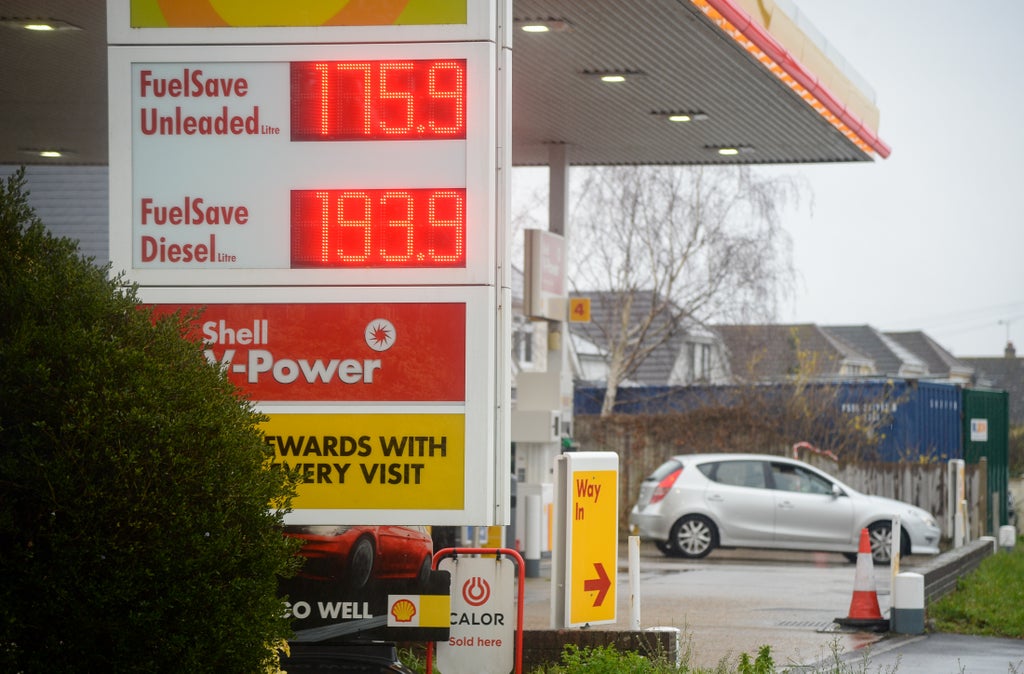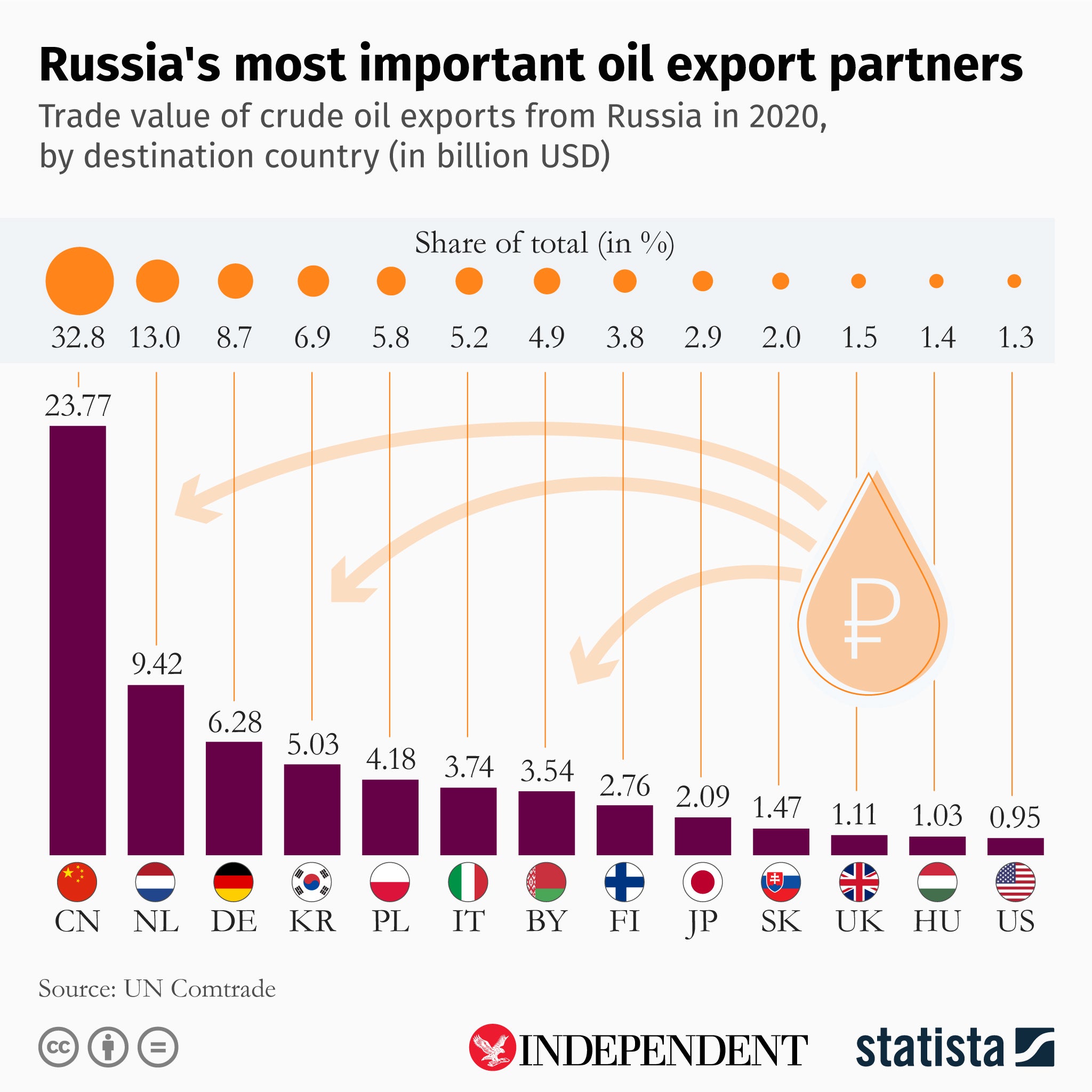
Boris Johnson today told oil and gas companies he wants to “remove barriers” to increased extraction of fossil fuels from the North Sea as part of his plan to wean the UK off reliance on Russian energy.
In a Downing Street roundtable with bosses of giants including BP and Shell, the prime minister said he wanted to accelerate investment and development of domestic gas supplies and ensure new projects come on stream more quickly.
The development was the latest evidence of how UK energy policy has been turned on its head by Vladimir Putin’s invasion of Ukraine, just months after the PM’s publication of an ambitious strategy to achieve net-zero carbon emissions by 2050.
Johnson last week announced the UK would cease use of Russian oil – but not gas – by the end of 2022, but made clear that homegrown hydrocarbons are expected to take up much of the slack.
Environmentalists warned that global warming targets risk being pushed to the side in the race to break the energy dominance which allows Putin to fund his military adventure.
Philip Evans, campaigner at Greenpeace UK, said: “In backing more oil and gas the PM risks being led down the garden path when he should be fixing his gaze on what we know can get us off gas much quicker – namely, rapid deployment of renewables and an upgrade to our cold, inefficient homes through the likes of insulation and heat pumps.”
Any newly licensed oil and gas fields would take an average 28 years to develop, so “even a sharp acceleration would leave decades before any results”, and companies would anyway then sell it internationally to the highest bidder, said Mr Evans.
Friends of the Earth’s energy campaigner Danny Gross said: “Since 2015, North Sea oil and gas companies have received over £4bn of public money.
“While ordinary people are struggling to pay their bills, the government shouldn’t be handing out more money to fossil fuel companies, who have made record-breaking profits. The best way to deal with the energy crisis is to rapidly end our reliance on fossil fuels.
It emerged today that Mr Johnson’s new energy supply strategy – promised in “the coming days” when first announced on 7 March – has been delayed at least until next week and possibly until the end of this month.
As part of its preparation, the PM is expected to visit Saudi Arabia to urge Crown Prince Mohammed bin Salman to increase oil production, in a trip rendered politically awkward because of the kingdom’s mass execution of 81 people, announced on Saturday.
Alongside accelerated nuclear and renewable programmes and increased use of UK-produced hydrocarbons, Downing Street has not ruled out a return to fracking as part of the hastily drawn-up strategy.
But shale gas firm Cuadrilla today said it had been left in the dark over whether it will be allowed to resume drilling at two test wells in Lancashire, which regulators are currently insisting must be permanently sealed by June.
CEO Francis Egan today said that, despite hints of a reprieve from Mr Johnson and business secretary Kwasi Kwarteng, the company has been given no official clarity on whether they should go ahead and concrete over the sites.
Cuadrilla was being forced to “suffer the risk and financial cost of operating in a position where a government can keep changing its mind and require wells to be cemented whilst they are eminently useful”, said Mr Egan.
Meanwhile, Downing Street did not deny reports that early discussions have taken place over the possibility of keeping open coal-fuelled power plants and units in Nottinghamshire and Yorkshire beyond planned closure dates later this year.
Mr Johnson’s official spokesperson told reporters: “We are sticking with a timetable of ending the use of coal by 2024. Outside of that, the operation of UK coal plants is a commercial matter. We’ve made no formal requests to individual companies or plants on that.”
Today’s meeting brought together ministers including Mr Johnson and Mr Kwarteng, the Oil and Gas Authority and executives from Blackstone, Bluewater, BP, Carlyle International, Equinor, Esso, Greenergy, Harbour, Neptune, Offshore Energies UK, Prax Group, TotalEnergies and Shell.
In a statement following the meeting, Downing Street said the PM and energy executives discussed options for “increasing investment in the North Sea oil and gas industry and boosting supply of domestic gas”.
No 10 said: “This included how the UK can remove barriers facing investors and developers, and help projects come online more quickly. They agreed to work together going forwards to help accelerate this further.”

Mr Johnson “reaffirmed his steadfast commitment to the North Sea oil and gas industry as a key asset in the UK’s plans for achieving greater energy independence, in ensuring the country’s smooth transition to net zero and in being part of the solutions needed for a cleaner future – which are ever more crucial as we move away from Russian hydrocarbons following Putin’s illegal invasion of Ukraine”, said the statement.
No 10 continued to set its face against calls for a windfall tax on the companies, which are enjoying surging profits as the war in Ukraine and international sanctions drive energy prices sky-high.
Labour and Lib Dems have called for a one-off tax to cushion the blow of household gas and electricity bill rises expected to total as much as £1,700 for the typical household this year.
But Mr Johnson’s spokesperson said: “The government’s view remains a windfall tax could deter investment opportunities, put jobs at risk and could risk the security of our energy supply. That remains our position.”
The PM’s official spokesman said government wanted to reduce volatility in the oil market and bring down prices.
Asked whether the UK would like to see the Saudis increase oil production, the spokesman said: “We will be speaking to the Saudis about a range of issues, not just energy supply.
“Diversifying our energy supply is important, as is boosting renewable energy. There are no quick fixes but we do want to reduce the volatility and bring prices down.”







